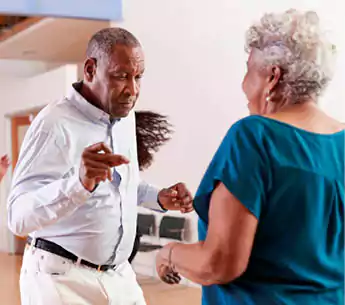Some potential explanations could include a slower metabolism, loss of muscle massTrusted Source, and becoming less activeTrusted Source over time. Now, researchers from the University of Colorado Boulder say older adults may move slower partially because it costs them more energy to do so than younger adults. Scientists believe this new research — recently published in the journal The Journal of Neuroscience — may help lead to new diagnostic tools for diseases such as Parkinson’s disease and multiple sclerosis.
Older adults slow their movements to conserve energy For this study, researchers recruited 84 healthy participants, including younger adults ages 18 to 35 and older adults ages 66 to 87.
During the study, participants were asked to reach for a target on a screen holding a robotic arm in their right hand. The robotic arm operated similarly to a computer mouse.Through analyzing the patterns of how study participants performed their reaches, scientists found that older adults modified their movements at certain times to help conserve their more limited amounts of energy, compared to younger adults.
“With age, our muscle cells may become less efficient in transforming energy into muscle force and ultimately movement,” Alaa A. Ahmed, PhD, professor in the Paul M. Rady Department of Mechanical Engineering in the College of Engineering and Applied Science at the University of Colorado Boulder and senior author of this study explained to Medical News Today. “We also become less efficient in our movement strategies, possibly to compensate for lower strength. So we recruit more muscles, which costs more energy, to perform the same tasks.” Does the brain’s reward circuit still function in older adults? Ahmed and her team also wanted to see how aging might affect the “reward circuitryTrusted Source” in the brain, as the body produces less dopamine as we grow older. Once again, participants were asked to use the robotic arm to operate a cursor on a computer screen. The objective was to reach a specific target on the screen. If they hit the target, participants were rewarded with a “bing” sound.










